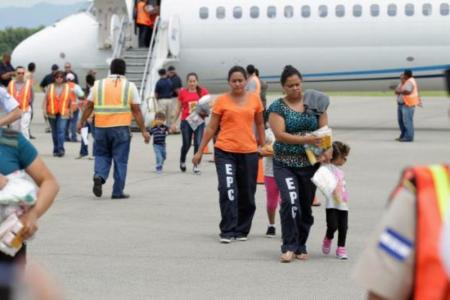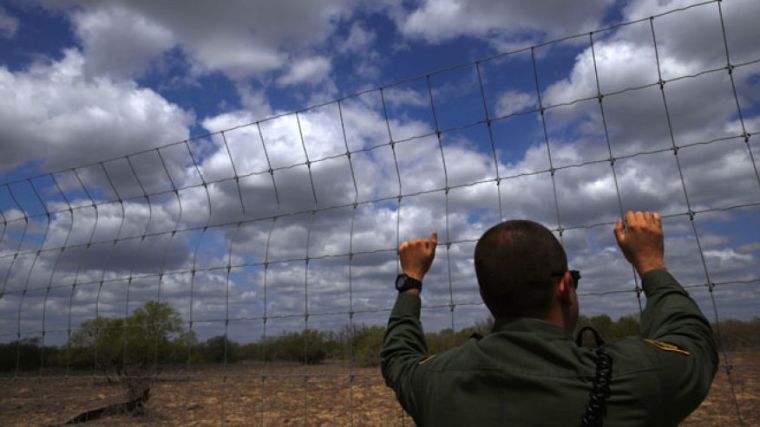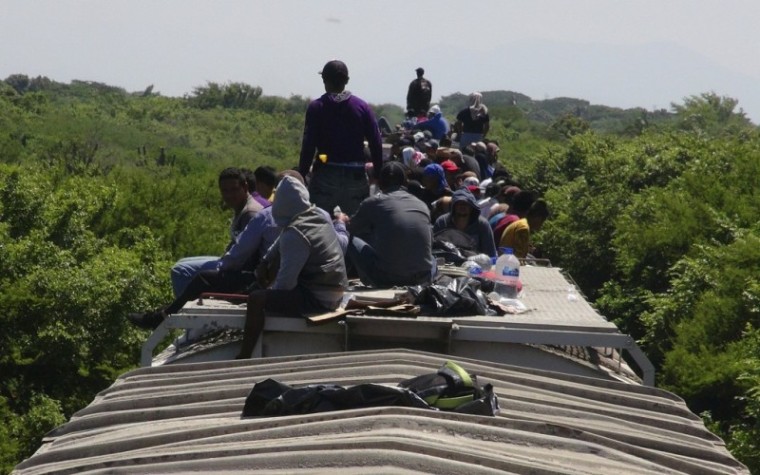Texas Gov. Rick Perry Says He Will Go It Alone to Secure the Border, Won't Wait for Federal Government
Texas Republican Gov. Rick Perry announced Monday that he has directed Texas Adjutant General John Nichols to deploy up to 1,000 troops to the border to support the Texas Department of Public Safety's ongoing law enforcement surge, called Operation Strong Safety.
The operation, according to the governor's office, is focused on combatting criminal activity in the region.
"There can be no national security without border security, and Texans have paid too high a price for the federal government's failure to secure our border," Perry said in a statement shared with The Christian Post. "The action I'm ordering today will tackle this crisis head-on by multiplying our efforts to combat the cartel activity, human traffickers and individual criminals."
During the first three weeks of Operation Strong Safety's implementation, the governor's office announced that apprehensions of illegal immigrants have dropped by 36 percent, from more than 6,600 per week to 4,200 per week in that area of operation.
The governor's office also noted that since 2008, more than 203,000 criminal illegal immigrants have been booked into Texas county jails. These criminals, the governor's office asserted, have committed more than 640,000 crimes in Texas, including more than 3,000 homicides and nearly 8,000 sexual assaults.
Perry told members of the U.S. Homeland Security Committee earlier this month that he had already requested an additional 1,000 National Guard troops to patrol the border temporarily until 3,000 new Border Patrol agents are trained. He explained that, unlike California, New Mexico and Arizona, Texas only has seven Border Patrol agents per mile for its 1,200-mile border with Mexico. Other border states have 17 agents per mile patrolling their southern border.
After meeting with Perry, faith-based leaders and Dallas County officials two weeks ago, President Obama said he will sign a $3.7 billion in supplemental emergency funding to help resolve the border crisis if Texas Republicans in Congress will support it.
Perry, however, asserted on Fox News' "Hannity" that less than 2 percent of those funds would go toward border security.
Similarly, on July 10 Democratic Sen. Mary Landrieu, D-Louisiana, a member of the Senate Appropriations Committee, said during a hearing on "emergency funding for unaccompanied immigrant children," that she would not support the $3.7 billion Obama is requesting because one agency won't have exclusive oversight on how the funds are being allocated and spent.
Rep. Kay Granger, R-Texas, who led a bipartisan delegation to Central America last week, said lawmakers are coming up with solutions to resolve the border crisis that will be attached to supplemental emergency funding Obama is requesting.
Granger, who led the trip to Guatemala and Honduras last weekend, told WFAA-TV in Dallas Sunday that the working group's proposal to Speaker John Boehner, R-Ohio, includes an increase the number of National Guard troops on the border as a deterrent, and to enable Border Patrol agents to go onto federal land for patrols, which they are not yet allowed to do.
Like Granger, Landrieu asserted that a 2008 anti-trafficking bill (the William Wilberforce Trafficking Victims Protection Reauthorization Act), which passed with bi-partisan support, is not blame for the surge in illegal immigrants entering the U.S.'s southern border. Instead, she said, members would have to go back to the 1980 asylum law that was supported by Sen. Dianne Feinstein, D-California. Feinstein told the committee that she championed the asylum law after she saw a news report about Chinese girls who had been shipped to the U.S. in a crate.
In an interview with The Christian Post, two U.S. residents from Guatemala and Honduras said the increase of illegal immigrants coming in from Central America started five years ago, during the Obama administration.
"It all happened by word of mouth," they said. "People called their relatives and told them that when they get to U.S., they'll be given papers and allowed to stay in the country. ... The U.S. must secure the border. The government should've secured the border as soon as they started seeing large groups of people crossing into the U.S."
"Not everyone is coming to the U.S. to work," they asserted, explaining that many people believe they will be supported by government programs.

The U.S. residents from Guatemala and Honduras explained that while it's heartbreaking to watch news reports showing young children who've been sent to the U.S. by their parents, it's important to understand that many Central American teenagers are leaving their homes despite their parents and grandparents objections.
"They all want to come to the U.S., it's the thing to do," the residents told CP. "Some of these teenagers are in gangs and they work for the cartels or are forced to work for the cartels. We don't want these people in the U.S., so the judges are going to have to take the time to look into everyone's background and figure out who they are. The young children, maybe they should stay if their parents are here, but the teenagers who left, they need to go back."
They continued, "When parents send their children on trains to the U.S., they know there are risks, but they don't think about it. They're just living off of hope — hope that all of the bad things they hear about won't happen to their children."
The residents also shared that Americans shouldn't assume that all of the illegal immigrants coming to the U.S. through Mexico are from Central America.
"People from all over the world travel to Guatemala hoping to get to the U.S. through Mexico — people from China, Brazil, even Cuba, everywhere," they added.
Granger noted during her WFAA-TV interview that the official number of illegal immigrant children who've entered the U.S. since the beginning of the year has reached 58,000. She also emphasized that the children need to be treated humanely, and she believes that housing them on U.S. military bases and in shelters is not the best way to do that.
"Lackland Air Force Base in San Antonio has 1,200 children being house on base, 600 boys on one floor and 600 girls on one floor, on a steel bed and a locker — that's not the way we want children to be treated," she said.
Subsequently, Granger explained that the judicial process of determining which illegal immigrant children stay in the U.S. and which ones are deported will have to expedited by adding judges, which the Obama administration is also proposing as part of its request for $3.7 billion in emergency supplemental funding.
During the Senate Appropriations Committee meeting on the issue of emergency funding to deal with the influx of illegal immigrant children who are entering into the U.S., Landrieu explained that there's already a backlog of 375,000 children whose cases have yet to be reviewed, which is expected to take the U.S. government between three and five years to complete.
According to Granger, this process can be expedited, in part, by returning the children to their home countries. Speaking about her tour of Guatemala and Honduras last week, she emphasized that government officials in those countries have said they want their children to be returned and reunited with their families.
That being said, however, Granger noted that "the majority of children are coming to reunite with a parent who also came to the U.S. illegally."
Granger added that there will continue to be a judicial process and review of cases for people who are seeking asylum in the U.S.
For those who are returned, Granger asserted that the U.S. can follow up with the families to make sure the children are reunited. She further suggested that the U.S. government should work with Christian nonprofits, such as Catholic Charities, which has experience working with refugees and know how to follow up on children.























